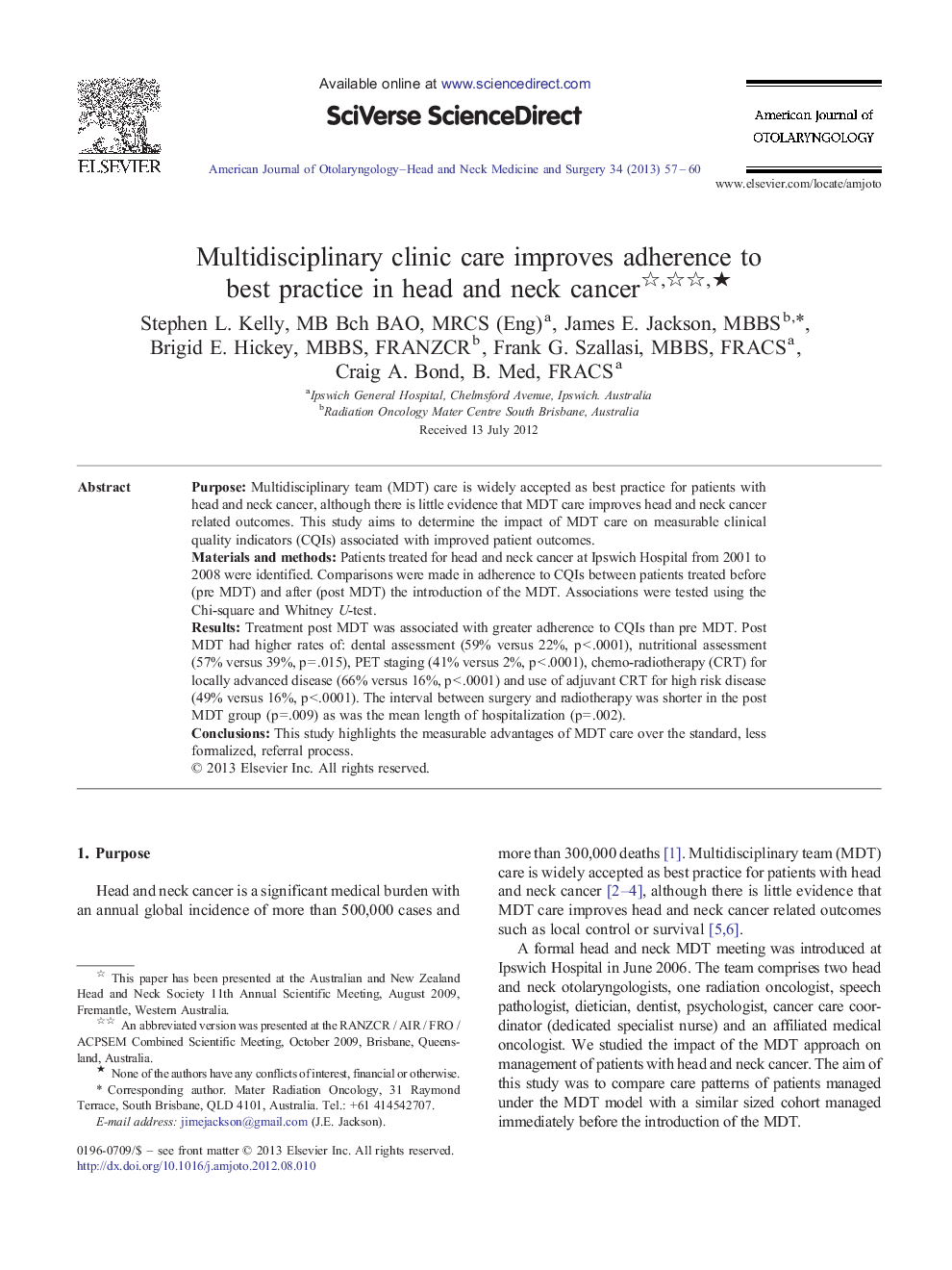| Article ID | Journal | Published Year | Pages | File Type |
|---|---|---|---|---|
| 4103915 | American Journal of Otolaryngology | 2013 | 4 Pages |
PurposeMultidisciplinary team (MDT) care is widely accepted as best practice for patients with head and neck cancer, although there is little evidence that MDT care improves head and neck cancer related outcomes. This study aims to determine the impact of MDT care on measurable clinical quality indicators (CQIs) associated with improved patient outcomes.Materials and methodsPatients treated for head and neck cancer at Ipswich Hospital from 2001 to 2008 were identified. Comparisons were made in adherence to CQIs between patients treated before (pre MDT) and after (post MDT) the introduction of the MDT. Associations were tested using the Chi-square and Whitney U-test.ResultsTreatment post MDT was associated with greater adherence to CQIs than pre MDT. Post MDT had higher rates of: dental assessment (59% versus 22%, p < .0001), nutritional assessment (57% versus 39%, p = .015), PET staging (41% versus 2%, p < .0001), chemo-radiotherapy (CRT) for locally advanced disease (66% versus 16%, p < .0001) and use of adjuvant CRT for high risk disease (49% versus 16%, p < .0001). The interval between surgery and radiotherapy was shorter in the post MDT group (p = .009) as was the mean length of hospitalization (p = .002).ConclusionsThis study highlights the measurable advantages of MDT care over the standard, less formalized, referral process.
